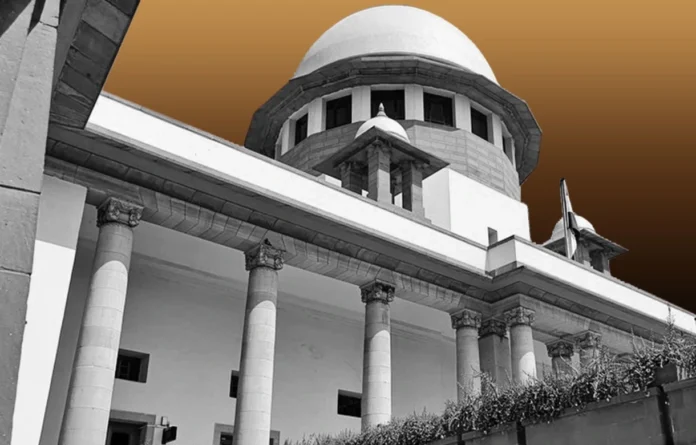The Supreme Court has acquitted a man, who was accused of raping and murdering a nine-year-old child, on the grounds that no proper legal aid was provided to him during the trial.
Highlighting the importance of ensuring free and effective legal aid for accused individuals throughout the trial proceedings, the Bench of Justice Abhay S Oka, Justice Ahsanuddin Amanullah and Justice AG Masih advised the public prosecutors to assist the trial courts in upholding the fairness and legal compliance in every trial.
In order to ensure a just legal process, as well as protect the rights of unrepresented accused, the public prosecutors must ensure that all such accused were provided with free legal aid.
The Bench made the observations on a petition filed by an appellant-accused, challenging his conviction on the ground that during the trial, he was unrepresented till the framing of the charge.
As per the accused, the incriminating materials were not put to him, while recording his statements under Section 313 CrPC. He said he was entitled to acquittal on the grounds of failure to put incriminating material to him in his examination under Section 313 of CrPC.
The Apex Court expressed its shock over the fact that the appellant was denied adequate legal representation during critical trial phases. Pointing out multiple instances of ineffective assistance, including missed opportunities for cross-examination, the Apex Court observed that the lack of effective legal aid constituted a breach of the appellant’s rights under Article 21 of the Constitution.
It said the right to get legal aid was a fundamental right of the accused, guaranteed by Article 21 of the Constitution. Even under Section 303 of the CrPC, every accused had a right to be defended by a pleader of his choice.
Section 304 provided for the grant of legal aid to an accused free of cost. In case an accused had neither engaged an advocate nor did he have sufficient means to engage an advocate, it became the duty of the trial court to inform the accused of his right to obtain free legal aid, a right covered by Article 21 of the Constitution.
Conducting the prosecution witness examination-in-chief in the absence of legal aid to the accused, deprived the accused of objecting to the leading questions asked in the examination-in-chief, noted the Bench.
It said if the examination-in-chief of a prosecution witness was recorded in the absence of an advocate for the accused, a very valuable right of objecting to the questions asked in examination-in-chief was taken away.
The appellant further raised doubts over the recovery process of the victim’s slippers and underwear, stating that neither the place and time of recovery have been mentioned in the recovery memo, nor did the prosecution examine the two witnesses to the recovery memo.
Authored by Justice Oka, the verdict noted that failure to provide incriminating materials to the accused seriously prejudiced his case. Unless all material circumstances appearing against him in evidence were put to the accused, he could not decide whether he wanted to lead any defence evidence, it noted.
The Apex Court said in the present case, even the date and place of the crime allegedly committed by the appellant were not shared with the appellant. What was reportedly seen by PW-2 was not put to the appellant in his examination, pointing towards prejudice against the accused.
The top court of the country further stressed on the role of the public prosecutors in assisting the trial courts to tell the accused about the incriminating materials in a language understood by him. It said a public prosecutor had to play an active role in ensuring that every trial was conducted in a fair manner, in accordance with the law.
It was the duty of a public prosecutor to invite the court’s attention to the requirement of putting all incriminating material to the accused. A public prosecutor was under an obligation to remain present when the examination of the accused was made to assist the Court, added the Bench.
Setting aside the impugned judgment, the Bench ordered the release of the appellant.


